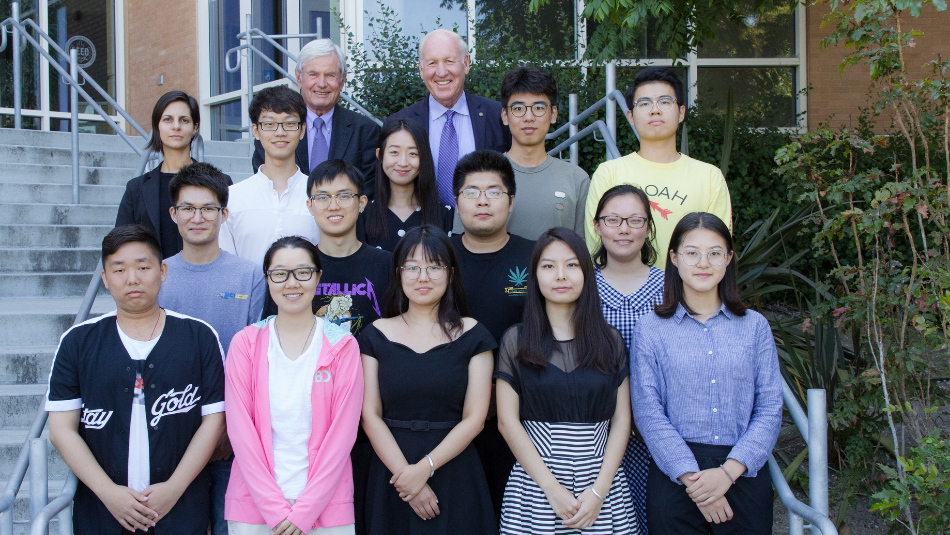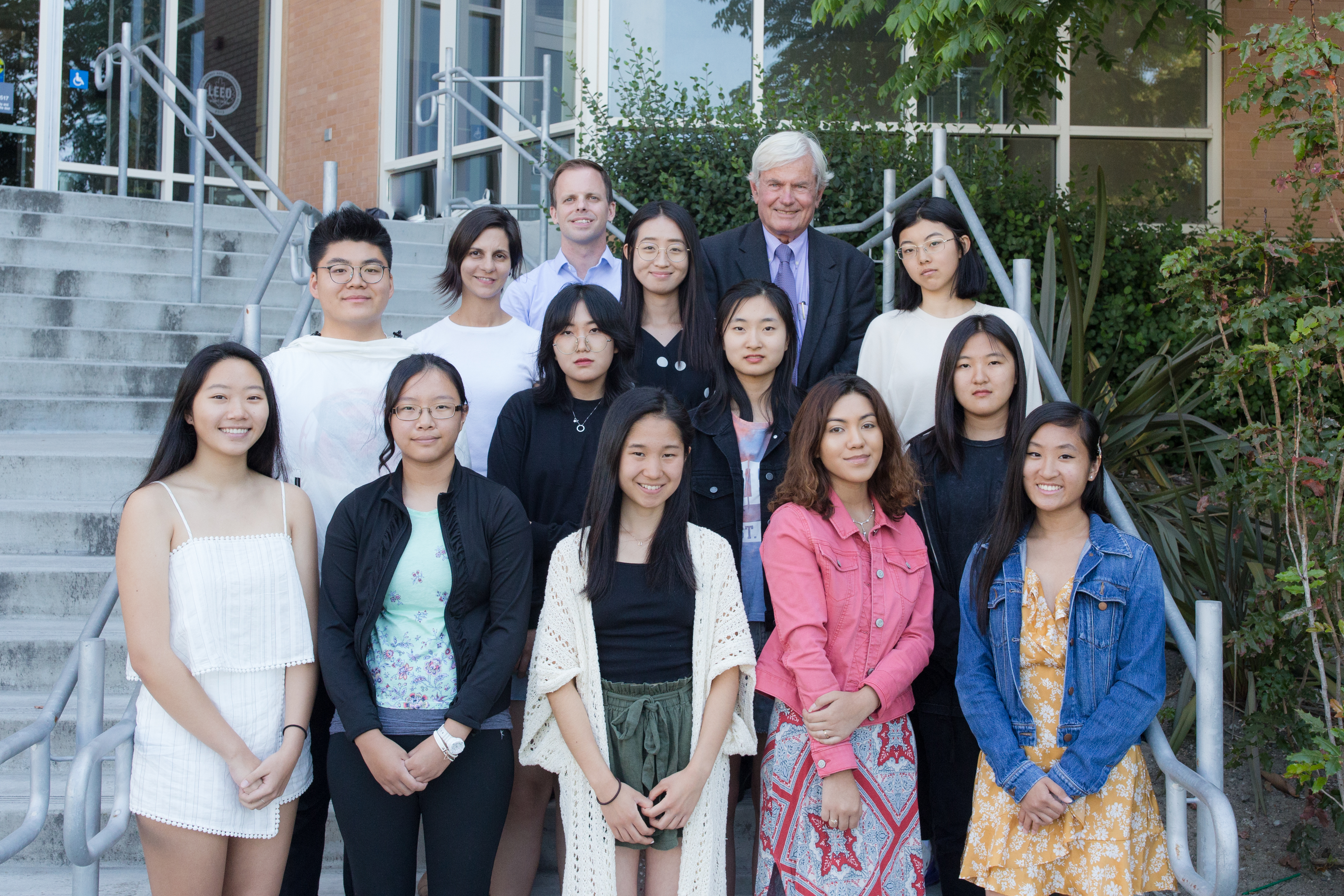
Chinese college students, above, and high school students, below, spent the summer at UC Irvine, taking a social ecology class, taught by John Whiteley and Juliana Zanotto as part of a project that prepares them for university studies in the United States. Photos by Patricia DeVoe
School hosts high school and college students in summer program
By Mimi Ko Cruz
The story of Flint, where the water full of lead caused 12 deaths, more than 300 miscarriages and other serious health problems, was the topic of discussion during an environmental analysis and design class on a recent Friday afternoon.
Taught by John Whiteley, professor of social ecology, and Juliana Zanotto, social ecology lecturer, the non-credit summer course is offered to Chinese high school and college students who are part of a project that prepares them for a university education in the United States.
The project, launched in 2016, is a partnership between the California Department of Education and the Pegasus California School in China. As part of the project, Chinese students earn a high school degree in China and a high school diploma in California, while certified California high school teachers teach them at Pegasus in China during the academic year.
The School of Social Ecology works with UCI Continuing Education to host the students on campus each summer as they take the environment class. All 31 students of the first Pegasus graduating class this year were accepted for admission at U.S. universities, including UC Irvine, Dartmouth and Yale, Whiteley reports.
Daniel G. Aldrich, III, who spent four decades working for the University of California in senior administrative roles, has been involved in the project from its creation. He said the Pegasus School seeks to prepare its students for success in the 21st and 22nd centuries through critical thinking and hands-on learning.
“The students are engaged in a much more inquiry-based science and the role of the teacher is more of a facilitator who encourages them to solve problems as teams and explore their interests,” he says.
“Change comes one person at a time,” Aldrich adds. “Programs like this help develop young people’s minds, give them opportunities to pursue their passions and give them the tools to make them the change agents of the world.”
Back to class.
Whiteley gives the students the facts about Flint’s water crisis — how it happened and how the government failed to protect residents from lead poisoning, Legionnaires’ Disease and systemic racism. He also tells them about American laws that citizens used to compel government to divulge the truth.
“I’m going to apply for the animal science major at UC Davis and this class has been important and helpful to me,” says Xinyue Ling, one of the Chinese college students.
“In China, we only focus on atmosphere and water and soil and how to use technology to detect pollutants but we have no idea how society is affected by environmental problems,” says classmate Shijing Liang, who plans to study engineering and social ecology in the U.S. “This program offers me a way to learn how society works, how government behaves and how people affected by environmental disasters can overcome challenges and I can help make society better.”
Adds classmate Chang Su: “This program is really expanding my world view.”
